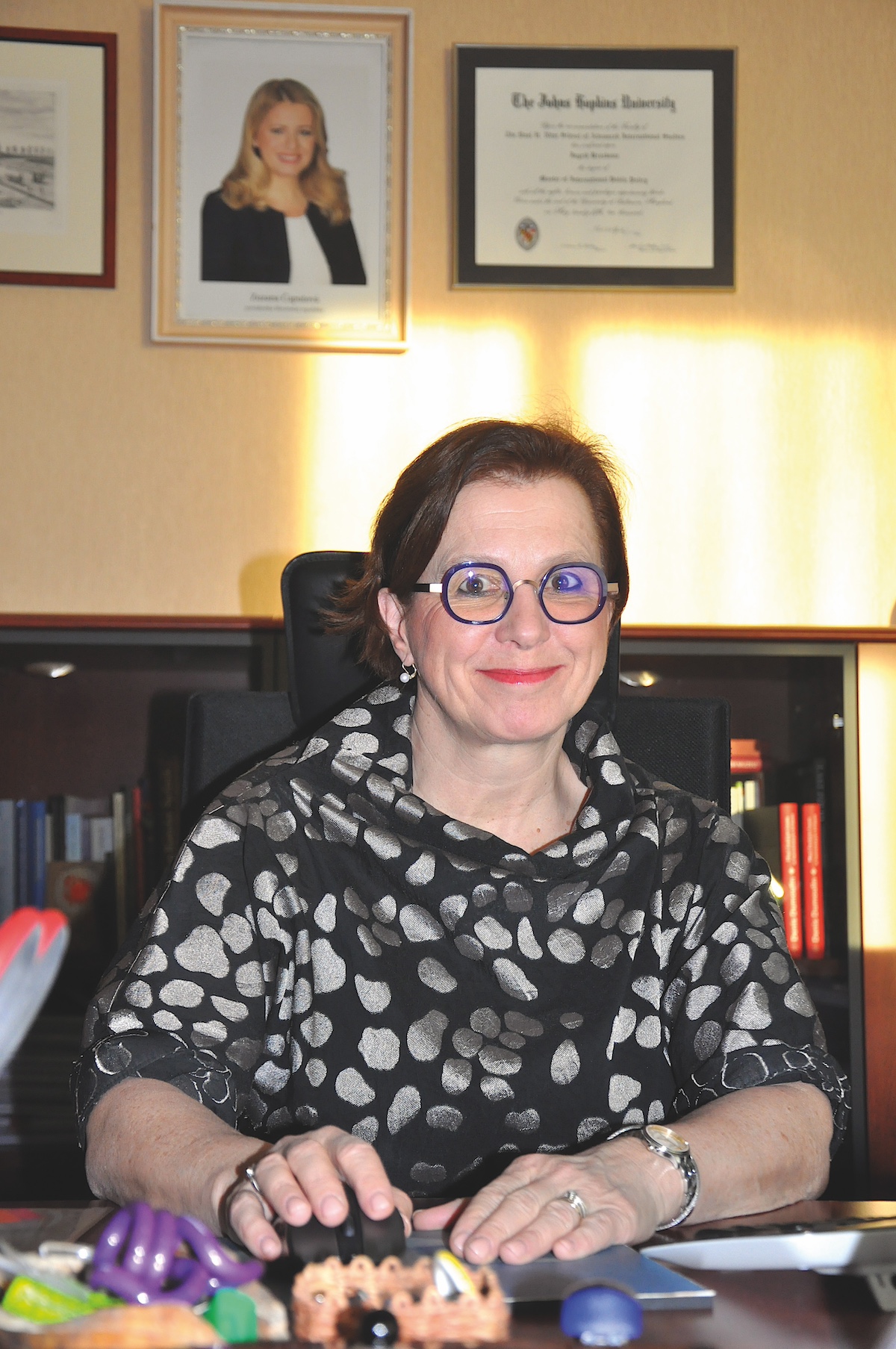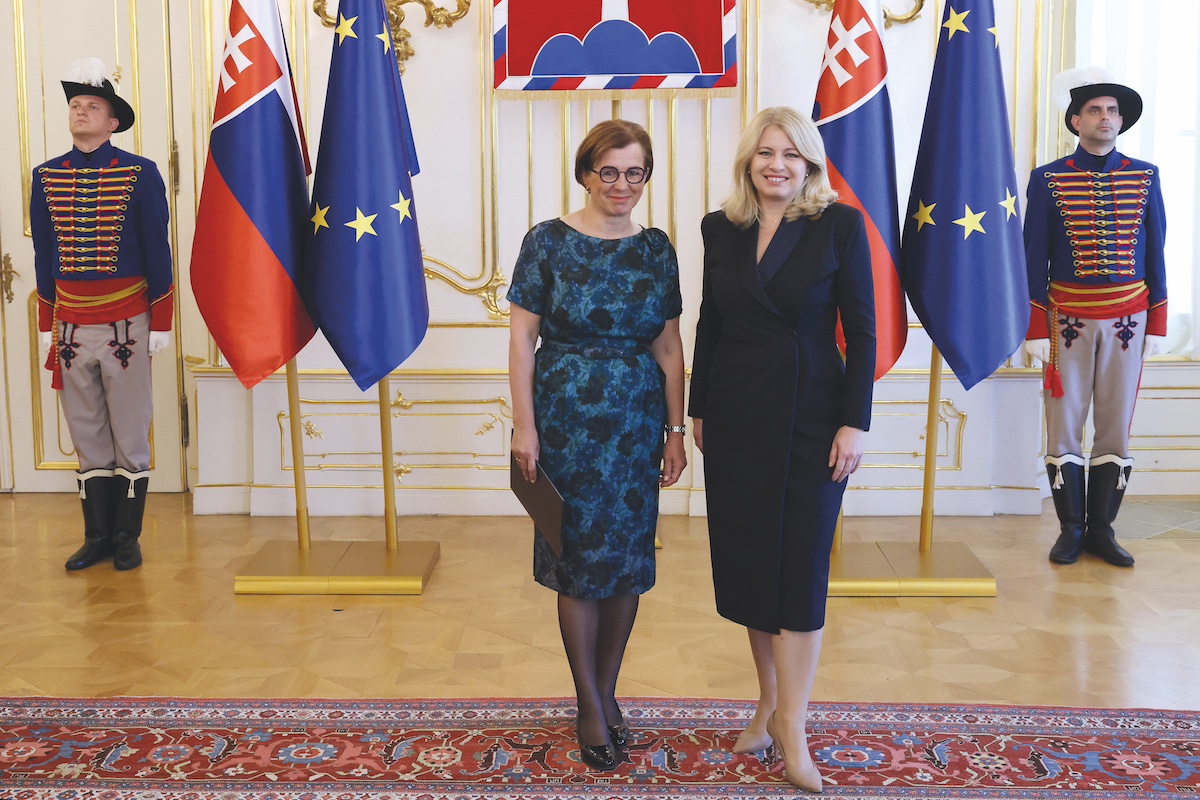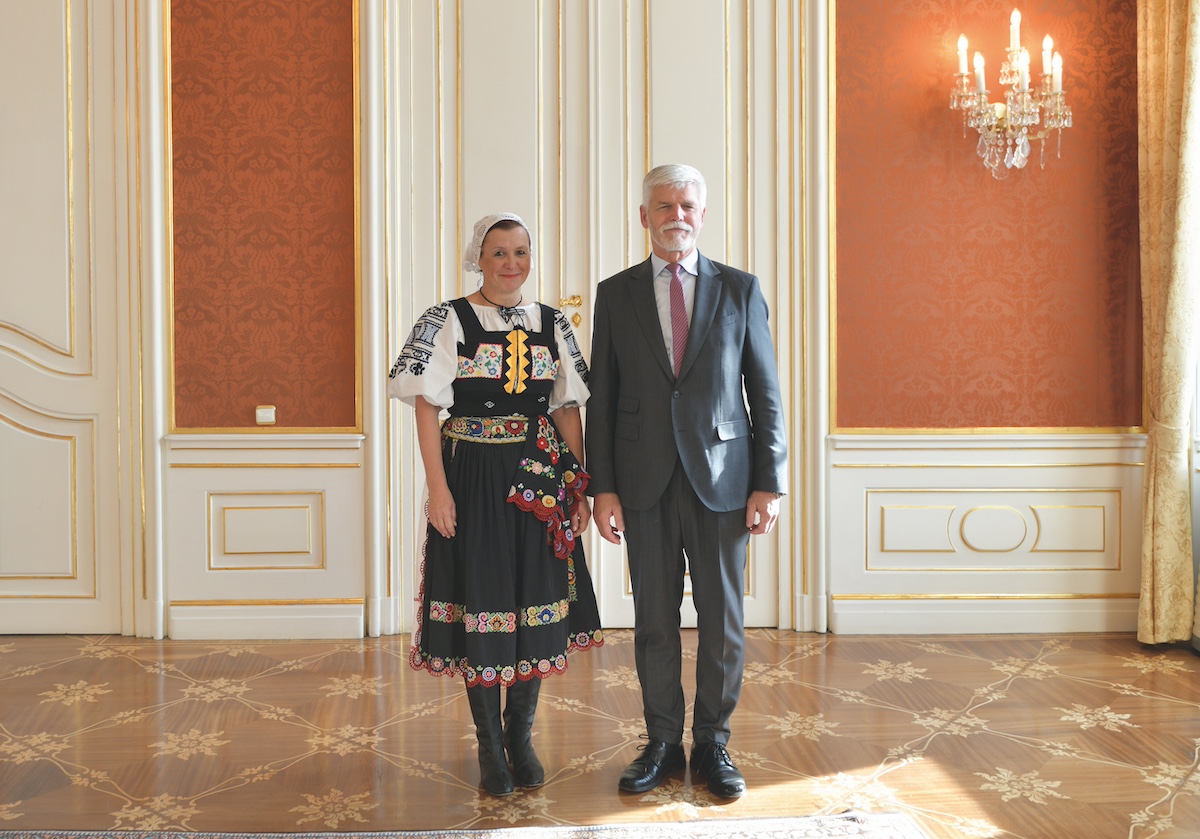“I am amazed by the robustness of our relations”

H.E. Ms. Ingrid Brocková, Ambassador of Slovakia
Text: Martina Hošková, M.Zisso; Photo: Archive
“Slovakia and the Czech Republic have been independent states for 30 years already. There is a younger generation, which does not have the sentiment or emotions of a joint state. That is why we need to promote Slovakia here as in any other country in the world by presenting our culture, promoting tourism, and cultivating language, especially among the younger generation,” states H.E. Ms. Ingrid Brocková, the new Ambassador of Slovakia to the Czech Republic.
Please tell us about yourself.
I am the new Slovak Ambassador to the Czech Republic, having arrived in Prague in September 2023. I have worked for the Foreign Service for almost 30 years, with a short break of 7 years while working as the Country Manager in the World Bank. Throughout my career, I have focused on economic diplomacy, development assistance, and cooperation with international institutions. I was privileged to be a part of establishing our Foreign Service, as well as working on the existential priorities of the Slovak Republic such as accession to the OECD, the EU, and NATO.
What made you decide on a professional diplomatic career?
It was an interest in international relations, my professional life, and definitely also the changes and opportunities in the Slovak Republic after the establishment of Slovakia as an independent state in 1993. It was just after my university and PhD studies, working in the private sector while finishing my studies at the Institute of International Relations at Comenius University in Bratislava. Becoming the Ambassador was never my priority goal, rather it was engaging in international relations.
How is it going at the Embassy in Prague so far? You have only been here for a few months…
It has been a very intensive few months, as the Slovak – Czech relations always are. This particular period is even more so because Slovakia has a new Government.
I am very pleased that the tradition of the first official top representatives’ visit to the Czech Republic was confirmed. Our President visited Prague three times in the fall. Personally, every day I am amazed by the robustness of our relations, and by the scope of the young Slovak diaspora living in the Czech Republic.
Which countries have you served in up until now?
I was privileged to serve my country as the economic diplomat in Washington, D.C., which also allowed me to study at the SAIS Johns Hopkins University (achieving a Masters in International Public Policy). I was also the Permanent Representative and Ambassador of Slovakia to the OECD in Paris twice.
Does being an ambassador fit your lifestyle?
Diplomacy is a mission and hierarchical service. If one is young, it is much easier to travel, to live in other country. It is more challenging when it comes to family life. I am blessed by a husband who is fully understanding of my duties and obligations. And we try to enjoy everything what comes with the job.

Zuzana Čaputová, President of Slovakia and H.E. Ms. Ingrid Brocková, Ambassador of Slovakia
What do you consider the best professional adventure you have experienced?
With all due respect, we can call it an adventure or a professional challenge – it was the accession process of my country to the OECD, the EU, and NATO. It took quite a long time, a lot of effort and determination, and a systemic whole-of-government approach. Being the Vice Minister of the Ministry of Foreign Affairs up until recently, the professional adventure was to generally address the corporate culture and professionalism of our diplomacy.
On the other hand, what is the weirdest thing you have dealt with?
In a way, the corporate culture – the agenda of gender equality, inclusion, and diversity. Here, the diplomacy of each country hasaroletoplay–toleadby example in own country, and to point out what the standard is and isn’t anymore. As a diplomat, inspired by examples of good practice from other countries, you can bring inspiration back home to improve your system.
What is the most difficult part of being an ambassador?
The most challenging is the variety of issues the ambassador and embassy deal with on a daily basis. Today, diplomacy is no longer only a political, discrete agenda, but it is more about sectorial topics and trends such as climate change, energy, migration, labour market, investment, disinformation etc. In addition, we have new tools for communication. Social media is a new phenomenon. Diplomats need to reach out to the wider public.
How do you enjoy your free time?
Free time? Number one is sports, to clear up the head. Thanks to compensating for my workload I have finished four marathons, I do ski alpinism, and I like hiking – escaping to nature. Another way is our garden – flowers and herbs. I am proud to be the founder of a book club, which has existed for over 20 years – another dimension or way to escape from the daily routine.
Can you give a piece of advice to the next generation of ambassadors?
Diplomacy is a very enlightening and inspirational profession, and you must often be really creative – especially in the case of small countries with limited capacities.
I would encourage all young people to be interested in the trends and development. Many challenges are of a global nature, and the younger generation has different views and approaches to many of them. We have to talk more and cooperate. When choosing diplomacy, the aspect of serving your country is also very strong.

Petr Pavel, President of the Czech Republic and H.E. Ms. Ingrid Brocková, Ambassador of Slovakia
Do you promote Slovakia in the Czech Republic? Is there a need to do this?
Slovakia and the Czech Republic have been independent states for 30 years already. There is a younger generation, which does not have the sentiment or emotions of a joint state. That is why we need to promote Slovakia here as in any other country in the world by presenting our culture, promoting tourism, and cultivating language, especially among the younger generation. In Czechia, we have the Slovak Cultural Institute and the Slovakia Travel Agency representatives, these are the key vehicles in our effort. And it is also natural part of daily work of the team at the Embassy.
What is the current status of Czechia-Slovakia relations?
The Slovak and Czech relations have always been unique. For the future, however, we need to work intensively on their substance and relevance to the interests of both countries. The agenda is very demanding and wide – from political formats such as the joint sessions of the governments and parliaments, to the economic topics such as energy security, connectivity, and competitiveness. The priority focus also includes promoting people-to-people contacts, especially among the younger generation.
This interview is done on the occasion of your national day. Do you have a wish for both countries?
To both countries, I wish to preserve the uniqueness of our bilateral relations, and to be reliable partners and allies to the wider transatlantic economic and security community.

